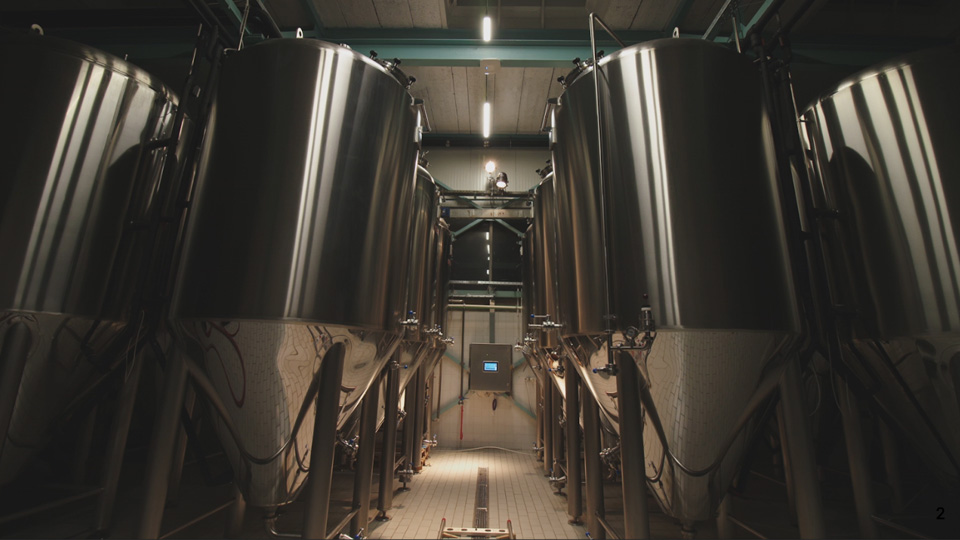CTO and Co-Founder Ouwei Wang, introduces us to the fascinating world of synthetic biology, where everything from bioplastics to food and high-value enzymes are made with bacteria. However, one significant roadblock remains–the cost of production. Ouwei shares the need for drastic cost reduction and increased productivity for genetic biology to transition from future potential to reality.
5 Things You'll Hear:
- The Transformative Power of Continuous Fermentation: Discover how this technology has revolutionized data throughput in the biomanufacturing industry, pushing boundaries and accelerating optimization of fermentation processes
- The Bottleneck in Bioprocessing: Learn why there hasn't been much innovation in bioreactor technology since World War II and how it affects scale-up and process validation
- The Journey from Microscopic to Mammoth: Explore the scale-up process of synthetic biology, from a single bacterium to cubic meter reactors, and how conditions shift for maximum productivity
- Conquering the Challenges: Delve into the key solutions to the hurdles faced by synthetic biology, such as the cost of goods and limitations in manufacturing capacity
- Turning Technology into Reality: Understand why now is the time for the industry to address these problems and translate sophisticated technology into viable products
"Synthetic Biology (SynBio) is the process of making things from scratch with biological components. But what things, and for what? By designing micro-organisms with specific functionality, we can now create better products, such as food without allergens, plants that need less nutrients or that are more resistant to disease, or even natural clothes fabrics that morph when you sweat."
Kira Noodleman - Partner, Bee
Partners
Read more about the nascent, evolving Synthetic Biology Industry in our Synthetic Biology Insight Paper or more about the mission and vision of Pow.bio on their website.
Ouwei Wang: Scale-up in Synthetic Biology
Reducing Costs and Increasing Efficiency
In an era where bacteria can create bioplastics, high-value enzymes, and even food, it's undeniable that synthetic biology has pushed the boundaries of what's possible. However, there's a catch—the products of synthetic biology often come with a hefty price tag. They tend to be more expensive than their traditional counterparts, which presents a significant hurdle for the industry to overcome. But there's hope on the horizon. The key to realizing the full potential of synthetic biology lies in reducing production costs and boosting productivity. It's not just about biology being the future; it's about making biology the present.
At the heart of this transformation is technology that revolutionizes the way we approach fermentation systems. Traditional fermentation methods are slow, often taking a week or more to generate a single data set. But with the introduction of new technology, high-throughput fermentation is now a reality. It means that we can achieve in one week what used to take months. This game-changing capability isn't just about speed; it's about the data. More data allows for quicker optimization of fermentation processes, paving the way for cost reductions and enhanced productivity.
Scale-up is a journey that starts from a single bacterium and goes all the way to cubic meter reactors. Many synthetic biology companies start small, working with microscale or milliliter setups, far from the actual manufacturing conditions. These conditions lack the crucial control parameters needed for effective production. pH levels fluctuate, temperatures remain uncontrolled, and cell growth is often inefficient. Scaling up these processes into controlled bioreactors is the key to unlocking the full potential of synthetic biology. In bioreactors, conditions are tightly regulated, mass density is significantly higher, and production is vastly improved. It's a quantum leap in terms of efficiency.
Did you know that the conditions in a Bell reactor are ten times, 20 times, or even 100 times more dense than those in traditional flasks? This incredible density results in a substantial increase in product yield–think 20, 30, or even 40 times more product!
While technology has rapidly evolved in various areas of synthetic biology, the field of bioprocessing and scaling up has lagged behind. When we think of innovations like PCR, Crispr-Cas, and advanced AI-driven strain engineering, it's clear that progress has been remarkable. However, when it comes to bioprocessing and scaling, there hasn't been much innovation since World War II. This bottleneck is a significant challenge for the industry, one that urgently needs addressing.
Currently, the most pressing problems that the synthetic biology industry must overcome are the high cost of goods and manufacturing capacity limitations. The clock is ticking, and the industry is at a critical juncture. It's no longer enough for synthetic biology to be an advanced technology; it's time for it to be a product, delivering on its promise. It's time to bridge the gap between sophisticated technology and practical, scalable, and cost-effective solutions.
In conclusion, the potential of synthetic biology is immense, and it holds the promise of transforming how we produce everything from bioplastics to high-value enzymes. However, for it to become a reality, the industry must tackle the challenges of cost and capacity head-on. With innovative technology that accelerates fermentation processes and a focus on scaling up effectively, the future of synthetic biology is within reach. It's a future where biology is not just the future, but a vital part of our present.
Ouwei and his Co-Founder Shannon came through our third fund, and since the investment, the team has continued to grow its service and personnel. Click here to learn more about the Company and Team, or here if you are a Founder innovating in any of our three vectors.

No Comments.